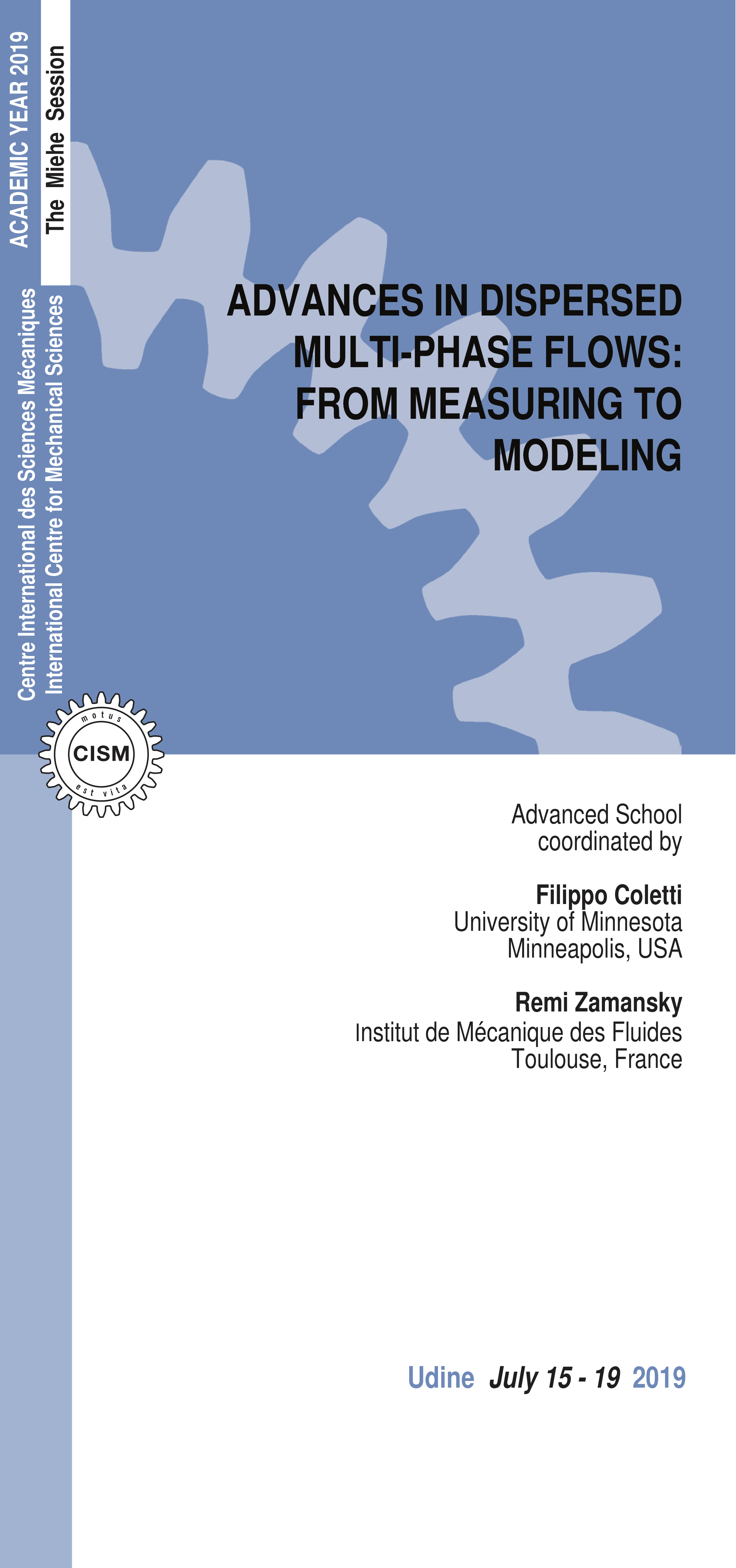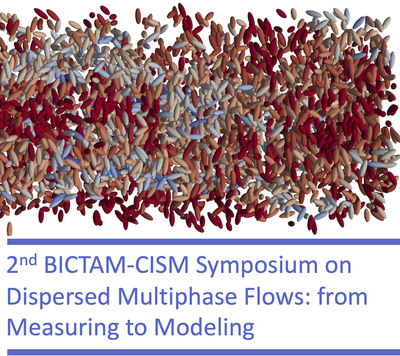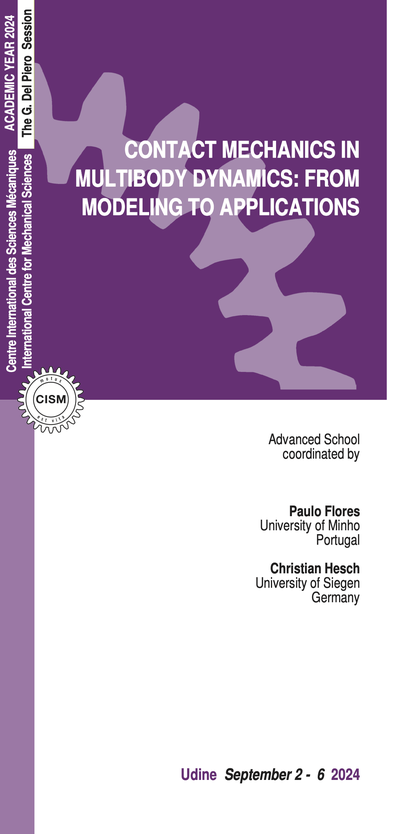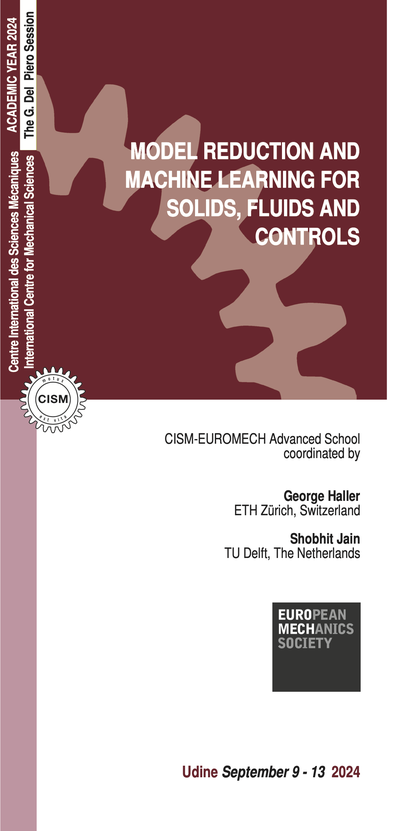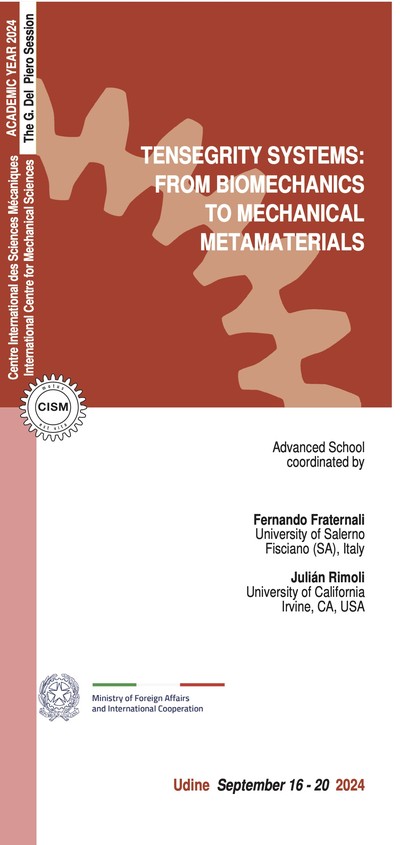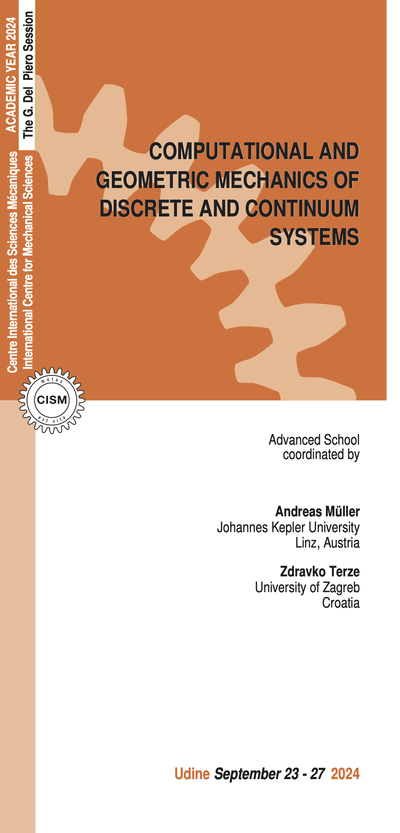Multi-phase flows where a dispersed phase interacts with a carrier fluid are ubiquitous in nature and industry, but the description of their dynamics has challenged scientists and engineers for decades. Difficulties arise due to the interface between the continuous and dispersed phases, the opacity of the media, and the vast range of spatial and temporal scales at play. However, recent developments in both measurement techniques and predictive capabilities bear the promise of a rapid progress in the near future. In this course, we will review existing theories that describe the behavior of this class of flows, and introduce a variety of measurement and simulation strategies that capture and reproduce the key phenomena.
Even in the idealized scenario of dilute suspensions of point-like particles, inertia leads to non-trivial behaviors, especially in the turbulent regime. Classic results on single-phase and particle-laden turbulence will be reviewed, as well as recent findings on multi-scale clustering and gravitational settling, especially relevant to natural phenomena. With increasing levels of concentration, we will illustrate how the two-way coupling between the phases becomes manifest, for both momentum and energy. Recent insight on the behavior of finite size particles of different shape and their interaction with the fluid will be also discussed. Bubbly flows display distinctive features due to the bubbles being often large and deformable, with gas-liquid interfacial dynamics and compressibility effects contributing to a rich phenomenology. We will review the fluid dynamics around individual and swarming bubbles, emphasizing the different types of agitation induced in the carrier liquid. Considering dense suspensions of particles or droplets in a liquid phase, we will introduce the fundamentals of rheology, highlighting the relation between the suspension structure and the macroscopic properties. We will also explore exciting developments on active dispersions, at the intersection of fluid mechanics and biology.
Throughout this course, we will critically assess modern numerical and experimental strategies. The former will include Eulerian methods with sharp and diffuse interfaces, and Lagrangian-Eulerian methods for rigid and deformable particles. Kinetic-based moment methods will also be addressed, stressing their connection with two-fluid methods and illustrating their versatility in technological applications such as polydisperse sprays. On the experimental side, we will address optics-based methods relying on particle imaging, but also powerful medical imaging modalities that can overcome the medium opacity.
The course is mainly directed to doctoral and postdoctoral students in engineering and physics, with strong interests in numerical simulations and experimental methods. It is also suited for researchers working in academia or R&D, interested in rapidly gaining a comprehensive overview of multiphase dispersed flows. The attendees will be encouraged to actively participate in the scientific conversation, also through a poster session in which they will present and discuss their own research. Matlab implementations of selected methodologies will be available for hands-on exercises.
Adrian, R. J., & Westerweel, J. (2011). Particle image velocimetry. Cambridge University Press. Balachandar, S., & Eaton, J. K. (2010). Turbulent dispersed multiphase flow. Annual Review of Fluid Mechanics, 42, 111-133.
Discetti, S., & Coletti, F. (2018). Volumetric velocimetry for fluid flows. Measurement Science and Technology, 29(4), 042001.
Drui, F. (2017). Eulerian modeling and simulations of separated and disperse two-phase flows: development of a unified modeling approach and associated numerical methods for highly parallel computations”. PhD Thesis, Université Paris-Saclay, https://tel.archives-ouvertes.fr/tel-01618320/en
Elkins, C. J., & Alley, M. T. (2007). Magnetic resonance velocimetry: applications of magnetic resonance imaging in the measurement of fluid motion. Experiments in Fluids, 43(6), 823-858.
Essadki, M., de Chaisemartin, S., Laurent, F., & Massot, M. (2018). High order moment model for polydisperse evaporating sprays towards interfacial geometry description. SIAM Journal on Applied Mathematics, 78(4), 2003-2027.
Lashgari, I., Picano, F., Breugem, W. P., & Brandt, L. (2014). Laminar, turbulent, and inertial shear-thickening regimes in channel flow of neutrally buoyant particle suspensions. Physical review letters, 113(25), 254502.
Mewis, J., & Wagner, N. J. (2012). Colloidal suspension rheology. Cambridge University Press. Popinet, S. (2018). Numerical models of surface tension. Annual Review of Fluid Mechanics, 50, 49-75. Risso, F. (2018). Agitation, mixing, and transfers induced by bubbles. Annual Review of Fluid Mechanics, 50, 25-48.
Sethian, J. A., & Smereka, P. (2003). Level set methods for fluid interfaces. Annual review of fluid mechanics, 35(1), 341-372.
Tsinober, A. (2009). An Informal Conceptual Introduction to Turbulence. Springer, 2nd edition, Berlin.
Unverdi, S. O., & Tryggvason, G. (1992). A front-tracking method for viscous, incompressible, multi-fluid flows. Journal of computational physics, 100(1), 25-37.
5 lectures on: Eulerian methods including sharp interfaces approaches, i.e. Volume of Fluid and Level Set, and diffuse-interface methods; Lagrangian-Eulerian methods for rigid and deformable particles; Immersed-Boundary and Front Tracking methods; results on wall-bounded turbulent flows with finite-size particles of different shapes.
5 lectures on: Introduction to rheology; rheometry; non-Newtonian fluid flows; viscoelasticity; shear thinning and shear thickening; flocculated suspensions; thixotropy; active fluids.
4 lectures on: Experimental methods for multiphase flows, including: Particle Image Velocimetry, Particle Tracking Velocimetry, Magnetic Resonance Imaging; effects of turbulence and inertia of gravitational settling; applications in the domains of atmospheric precipitation, sediment transport, and biomedical flows.
5 lectures on: Eulerian modeling of polydisperse dispersions; kinetic-based moment methods; treatment of non-spherical objects using geometrical variables; mathematical structure of conservation equations; design of realizable and accurate methods for high performance computing; unified Eulerian modeling disperse two-phase flows.
5 lectures on: Causes of fluctuations in bubbly flows; flow regime of a single bubble; statistical and spectral features of the liquid agitation induced by moving bubbles; underlying physical mechanisms by localized spatial disturbances from collective flow instability; practical consequences on mixing and interfacial transfer.
5 lectures on: Particles/turbulence interactions. Review of theoretical, experimental, and numerical studies of turbulent flows. Phenomenology of particle-turbulence interaction (dispersion, clustering, effect of Reynolds number, the size and the density). Advances on small-scale turbulent motions modeling for dispersed phase flow.
The registration fee is 600.00 Euro + VAT*, where applicable (bank charges are not included). The registration fee includes a complimentary bag, four fixed menu buffet lunches (on Friday upon request), hot beverages, downloadable lecture notes and wi-fi internet access.
Applicants must apply at least one month before the beginning of the course. Application forms should be sent on-line through the following web site: http://www.cism.it. A message of confirmation will be sent to accepted participants. Applicants requiring assistance with the registration should contact the secretariat at the following email address cism@cism.it.
Applicants may cancel their course registration and receive a full refund by notifying CISM Secretariat in writing (by email to cism@cism.it) no later than two weeks prior to the start of the course.
Cancellation requests received during the two weeks prior to the start of the course will be charged a 50.00 Euro handling fee. Incorrect payments are also subject to a 50.00 Euro handling fee.
A limited number of participants from universities and research centres who are not supported by their own institutions can be offered lodging and/or board, if available, in a reasonably priced hotel or student guest house.
Requests should be sent to CISM Secretariat by May 15, 2019 along with the applicant's curriculum and a letter of recommendation by the head of the department or a supervisor confirming that the institute cannot provide funding. Preference will be given to applicants from countries that sponsor CISM.
Information about travel and accommodation is available on the web site www.cism.it, or can be mailed upon request.
* Italian VAT is 22%.
